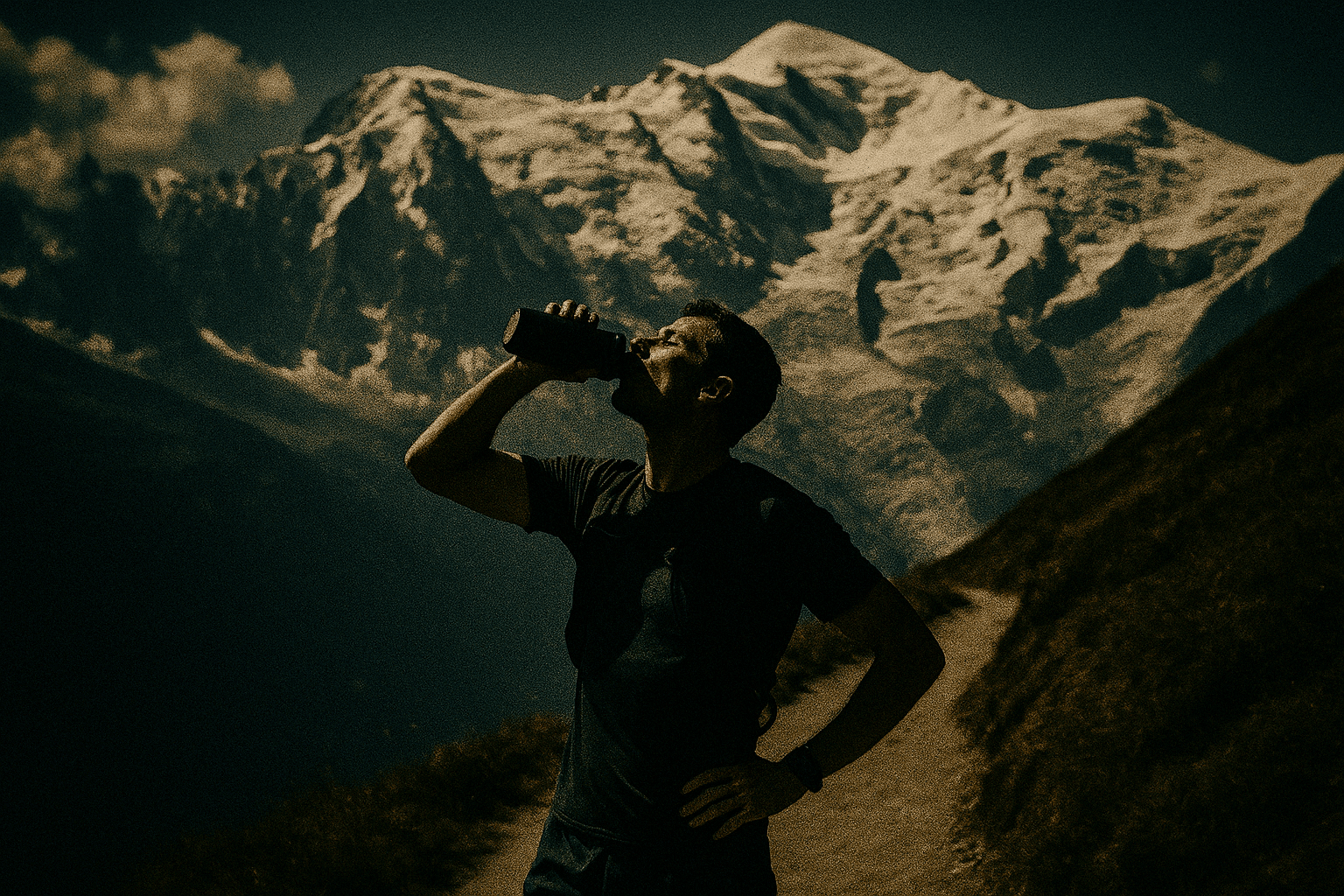Trail Running Fuel 101: A Beginner’s Guide to Eating Smart on the Trails

So, you’ve embraced the call of the wild, traded the pavement for the trails, and maybe even have a trail race on the horizon. Welcome to the exhilarating world of trail running! It’s a journey filled with breathtaking views, challenging climbs, and the undeniable need for some seriously smart snacking.
But when your adventure stretches beyond a leisurely jog, how do you keep your engine running strong? How do you fuel an effort that can last for hours, or even an entire day? Let’s dive into the science of nutrition for trail runners, breaking it down into simple, actionable advice to keep you feeling your best out on the trails.
⛰️ Why Nutrition Matters (A Lot)
Imagine your body as a finely tuned machine. When you’re trail running, especially for anything longer than a couple of hours, that machine demands the right fuel to perform optimally. Specifically, your body needs:
- Energy (mostly from carbohydrates): To power your muscles and keep you moving forward.
- Hydration (water and electrolytes): To maintain bodily functions and prevent dehydration.
- A Plan: Because waiting until you’re running on empty is a recipe for trouble.
Skimping on nutrition can lead to the dreaded “bonk” (hitting the wall), painful cramps, unpleasant nausea, or in a worst-case scenario, a DNF (Did Not Finish). But don’t fret! Fueling your trail adventures doesn’t have to be complicated.
🍞 Carbs Are Your Best Trail Buddy
Think of carbohydrates as the premium fuel for your trail running engine. According to the International Society of Sports Nutrition (ISSN), carbs are the primary energy source during endurance activities like trail running.
For those longer efforts that stretch beyond the 3-hour mark, aim for:
- 30–50 grams of carbohydrates per hour. This could come from sources like energy gels, bananas, chews, or sports drinks.
If you’re venturing into ultra distances (think 50K, 100K, or even more!), experienced athletes sometimes push this even higher:
- 60–90 grams (and in some cases, up to 100 grams) of carbs per hour. However, this level of intake usually requires specific training to ensure your gut can handle it.
Quick Carb Examples:
- 1 energy gel = ~25g carbs
- 1 medium banana = ~27g carbs
- 500ml sports drink = ~30g carbs
Don’t experiment with new foods or fueling strategies on race day! Use your long training runs to practice what works best for your stomach.
💧 Hydration: Not Just Water
Sweat is your body’s natural cooling system, but it takes more than just water with it. You also lose crucial electrolytes, particularly sodium, which play a vital role in muscle function.
Your Hydration Goals:
- Drink 400–800 ml of fluids per hour. This will vary depending on the heat, humidity, and the intensity of your effort.
- Replace sodium: Aim for 300–600 mg of sodium per hour.
How to Stay Hydrated and Replenish Electrolytes:
- Electrolyte Tabs or Powder: These can be added to your water to replace lost minerals.
- Salt Capsules: A convenient way to get a concentrated dose of sodium.
- Sports Drinks: Often contain both carbohydrates and electrolytes.
⚠️ Important Note: Be mindful of overdrinking. Consuming too much water without enough sodium can lead to a dangerous condition called hyponatremia (low blood sodium).
🥜 What About Fats and Protein?
For shorter trail runs (under 2-3 hours), you generally don’t need to focus heavily on protein or fat during your run. Your carbohydrate stores will likely be sufficient.
However, during ultra-endurance events, incorporating small amounts of fat and protein can be beneficial:
- Reduce Hunger: They can help you feel fuller for longer.
- Keep Your Stomach Happy: They can contribute to overall satiety.
Good Sources During Ultras:
- Nut butters (in small, easy-to-digest portions)
- Energy bars with some protein content
- A small handful of trail mix (be mindful of high fiber content)
🍗 A Word of Caution: Fats and proteins digest slower than carbohydrates. Consuming too much during a race can lead to gastrointestinal issues, so moderation is key.
🤢 What If I Get Nauseous?
Gastrointestinal (GI) distress is a common complaint among ultra-runners. Here’s how to minimize your chances of experiencing it:
- Train Your Gut: Just like your legs, your stomach needs practice processing food during exercise. Incorporate your race-day nutrition into your long training runs.
- Avoid High-Fiber or High-Fat Meals Right Before: These can take longer to digest and may cause discomfort.
- Stay Cool: Overheating can make digestion more difficult. Try to regulate your body temperature as much as possible.
If Nausea Strikes:
- Switch to Sips of Sports Drink: Easy to digest and provides some energy and electrolytes.
- Ginger Chews or Candies: Ginger can have a soothing effect on the stomach.
- Simple Crackers: Bland and easy to tolerate.
🧠 Before, During, After: Your Fueling Timeline
Here’s a simplified breakdown of what to eat and drink around your trail runs:
| Before: | Carb-rich meal 2–4 hours before (oats, rice) |
| During: | 30–90g carbs/hour + fluids + electrolytes |
| After: | Protein + carbs within 30 minutes (recovery shake, sandwich, etc.) |
🏁 TL;DR (Too Long; Didn’t Read)
- Eat early, eat often – especially carbohydrates.
- Don’t forget salt and water. Electrolyte balance is crucial.
- Practice your nutrition during training, not on race day.
- Everyone is different – find what works best for your stomach.
Trail running is a fantastic blend of physical and mental challenge. Just like you meticulously choose your gear, give your nutrition plan the same thoughtful consideration. Your legs (and your gut) will thank you for it as you conquer those epic trails!